You might be surprised to learn that your Ford F150’s dashboard warning lights are more than just a nuisance – they’re a crucial communication system designed to alert you to potential issues before they become major problems.
From subtle changes in engine performance to critical safety concerns, these lights are an essential part of your truck’s safety features.

But what do they really mean, and how can you respond effectively? As you glance at your dashboard, you might notice a light you’ve never seen before – what does it signify, and what should you do next?
Quick Navigation
Engine Performance Alerts

Your Ford F150’s dashboard is equipped with various warning lights that alert you to potential engine performance issues.
Oil Pressure Warning Light
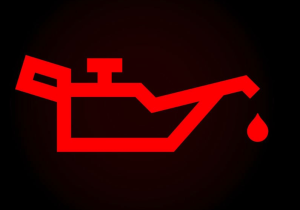
The oil pressure warning light illuminates if oil pressure is low, requiring immediate attention to avoid engine damage.
Engine Coolant Warning Light
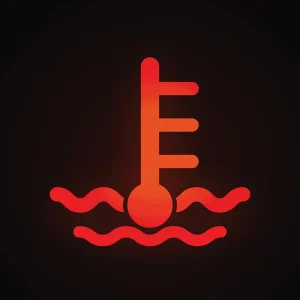
The engine coolant warning light indicates high engine temperature, requiring the vehicle to be stopped and cooled.
Wrench Warning Light

The wrench warning light signals a powertrain or all-wheel drive fault, which can be diagnosed using a code reader.
Safety and Security Notifications
The safety and security features of your Ford F150’s dashboard are designed to alert you to potential hazards that could compromise your safety on the road.
These notifications are vital in preventing accidents and ensuring your vehicle’s security. You’ll be alerted if your:
Anti-lock braking system (ABS)
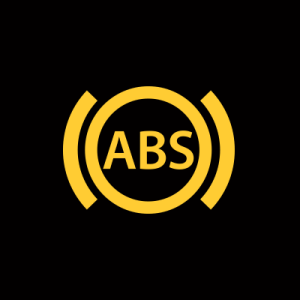
An illuminated ABS warning light indicates a potential problem with your vehicle’s anti-lock braking system.
Airbag

The airbag warning light indicates a potential problem with your vehicle’s Supplemental Restraint System (SRS), which includes airbags, seatbelts, and sensors.
Brake system

A brake system warning light on your car dashboard indicates a potential problem with your braking system, often signifying low brake fluid or an engaged parking brake.
Fuel Level and Economy Warnings
Fuel level and economy warnings are critical components of your Ford F150’s dashboard, as they alert you to issues that can impact your vehicle’s performance and fuel efficiency.
Low Fuel Warning Light
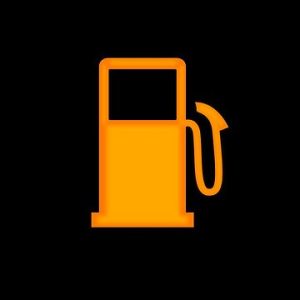
The low fuel warning light reminds you to refuel when the fuel level reaches 1/16th or 35 miles before empty.
Auto Start-Stop Warning Light

The auto start-stop warning light signals an issue with the auto start-stop system, which can affect fuel economy and emissions.
Tire Pressure Monitoring Alerts
Most Ford F150 owners will encounter the tire pressure warning light at some point, and it’s essential to understand what it’s telling you.
Tire Pressure Warning Light
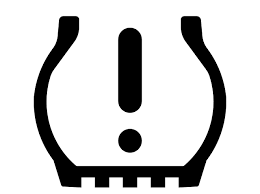
This light illuminates when your tires are under-inflated, which can lead to:
- Uneven tire wear.
- Reduced fuel efficiency.
- Increased risk of a blowout.
Electrical System Notifications
Operating your Ford F150 with a faulty electrical system can lead to a range of issues, from minor annoyances to serious safety concerns.
Battery Warning Light
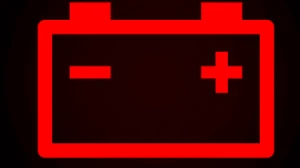
The battery warning light on your dashboard indicates a problem with battery charging, which could lead to:
- Engine shutdown if left unchecked.
- Alternator issues, potentially impacting your battery’s health.
Actions to Take
If you notice the battery warning light:
- Have your electrical system checked as soon as possible to prevent further damage.
- Address the issue promptly to avoid costly repairs or being stranded on the road.
Transmission and Drivetrain Warnings
One of the most critical systems in your Ford F150 is the transmission and drivetrain, which work together to transmit power from the engine to the wheels.
Transmission Temperature Warning Light
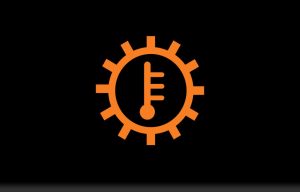
The transmission temperature warning light on your dashboard signals high transmission temperature. This may be caused by:
- Transmission slippage.
- Drivetrain malfunction.
Actions to Take
If this warning light illuminates:
- Reduce driving severity immediately to avoid damage.
- Stop driving and have your vehicle checked by a mechanic as soon as possible.
Brake System Failure Indicators
Your Ford F150’s brake system is a critical safety component that demands attention when something goes awry.
Brake Warning Light

When the brake warning light illuminates, it signals a problem that requires immediate attention. This could indicate:
- Low brake fluid level, which can lead to reduced braking performance or even complete brake failure.
- Worn-out brake pads, which may cause the brakes to overheat or vibrate, leading to further damage.
Actions to Take
If you notice the brake warning light:
- Pull over to a safe location as soon as possible.
- Check the brake fluid level.
- Add the recommended type and amount of brake fluid if it’s low.
Airbag and Safety System Alerts
Activate your awareness of airbag and safety system alerts, as they play a critical role in protecting you and your passengers on the road.
Airbag Warning Light
The airbag warning light on your Ford F150 dashboard signals a fault in the airbag system, which may prevent deployment in a collision. Common causes include:
- An airbag malfunction.
- Issues with the airbag system sensors or connections.
Vehicle Stability and Traction Warnings
Stability and traction control systems are integral to your Ford F150’s safety features, helping you maintain control on various road surfaces.
Stability/Traction Control Warning Light

The stability/traction control warning light will illuminate if there’s a fault in the system. Common causes include:
- Faulty ABS wheel speed sensors.
- System malfunctions affecting stability or traction control.
Actions to Take
If you notice traction loss indicators or stability system faults:
- Have your Ford F150 checked by a qualified technician.
- Diagnose and repair any issues promptly to ensure your safety on the road.
Other Critical Lights
Turbocharger Boost Warning
Indicates abnormal turbo boost pressure in EcoBoost engines. Reduced power may occur. Have system checked to prevent turbo damage.
Exhaust Fluid Level Low
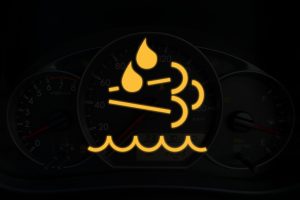
Warns of depleted diesel exhaust fluid (DEF) in 3.0L Power Stroke models. Refill immediately to avoid engine power reduction.
Engine Air Filter Restriction

Signals clogged air filter restricting airflow. Replace filter promptly to maintain fuel efficiency and engine performance.
Front Camera Fault Alert
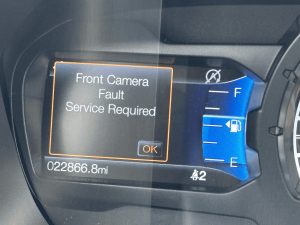
Indicates obstructed or malfunctioning front camera. Disables collision avoidance features. Clean lens or have system serviced.
Trailer Brake Controller Fault
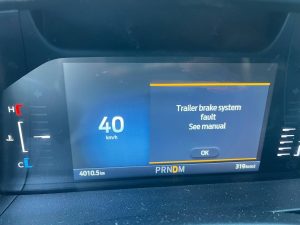
Warns of trailer brake system malfunction when towing. Check connections and controller settings before continuing.
360° Camera System Error
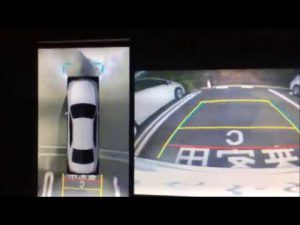
Signals fault in surround-view camera system. Parking assist features disabled. Requires system recalibration.
Hybrid Battery Temperature

Warns of extreme hybrid battery temps. System may reduce power. Allow to cool before recharging or driving.
Regenerative Braking Fault
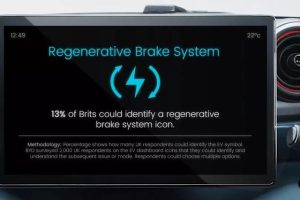
Indicates disabled energy recovery system. Braking feel may change. Have system serviced to restore efficiency.
Charge Port Door Alert
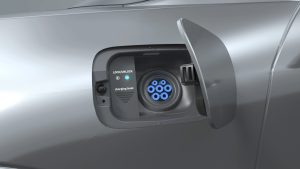
Signals malfunction in power port door mechanism. May prevent charging. Requires latch mechanism inspection.
Hill Descent Control Fault

Indicates disabled hill descent assistance. Manual braking required on steep grades. System needs diagnosis.
Trail Turn Assist Warning
Signals malfunction in off-road turning assist. Feature disabled. Have system checked before off-road use.
Pro Trailer Backup Alert
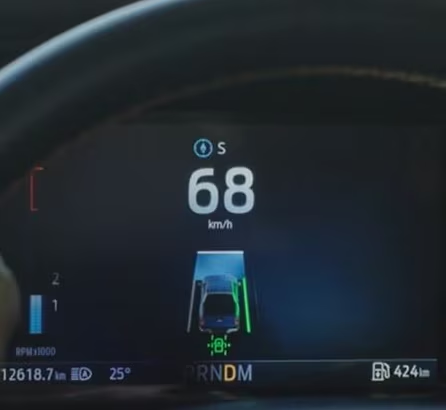
Warns of trailer connection issues when reversing. Check hitch and wiring before attempting backup maneuvers.
Rear Defrost Warning
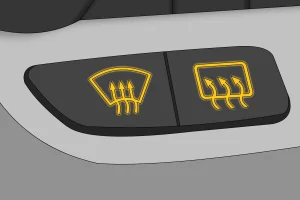
Indicates malfunction in rear window defroster. Reduced visibility in cold weather. Have circuit checked.
Cabin Air Filter Alert
Signals restricted cabin airflow. Replace filter to maintain HVAC performance and air quality.
Seat Heater Fault
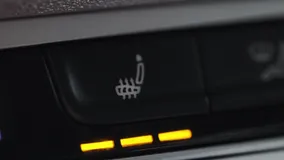
Warns of malfunction in heated seats. Feature disabled to prevent overheating. Requires component inspection.
Consult Your Owner’s Manual
For a detailed explanation of each warning light, refer to your owner’s manual to stay informed about your vehicle’s health and maintenance needs.
When looking at Ford, make sure to check out our guides on models like the Ford Escape, Ford Figo, Ford Galaxy, and Ford Falcon. Understanding dashboard warning lights is essential. Our expert reviews break down what each light means, highlighting common alerts for these models and what they could signal about underlying issues, so you’re never left guessing behind the wheel.

